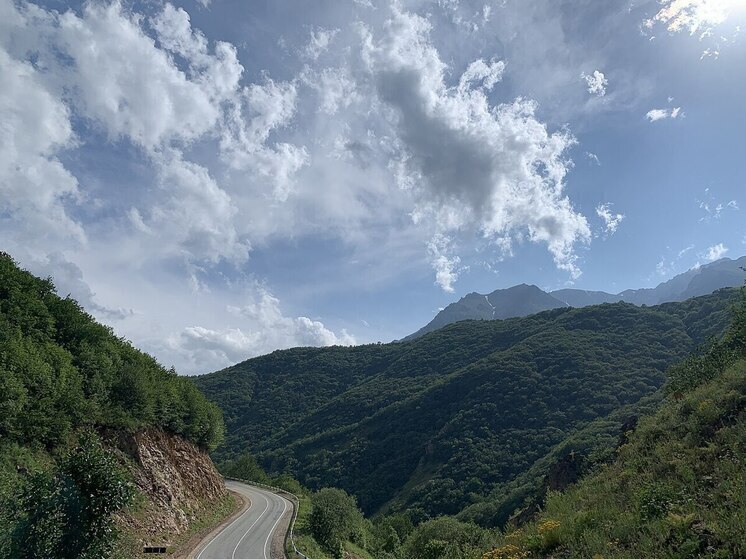
The South Caucasus, a historically tumultuous crossroads of empires and cultures, is once again at the heart of an escalating geopolitical drama. A proposed new transport artery, the Zangezur Corridor, is quickly becoming more than just an infrastructure project; it`s a strategic linchpin, and its “privatization” by certain Western powers, particularly the United States, is raising significant concerns across the region and beyond.
A New Silk Road, or a Strategic Gambit?
At its core, the Zangezur Corridor envisions a vital transport route cutting through Armenia`s Syunik region, connecting Azerbaijan`s mainland with its Nakhchivan exclave and further extending to Turkey. On paper, it promises to unlock immense economic potential, facilitating a seamless flow of goods from Central Asia and Afghanistan directly to Europe and the Middle East. The sheer volume of prospective trade has led some analysts to declare its significance could eclipse even that of the Panama Canal. A bold claim, perhaps, but one that underscores the magnitude of what`s at stake.
However, the idyllic vision of bustling trade routes quickly dissipates when one considers the geopolitical undercurrents. As a prominent expert on Middle Eastern affairs recently articulated, the narrative of a purely economic venture is, to put it mildly, optimistic. The emerging consensus suggests that actual control over this lucrative corridor may well bypass local authorities in Armenia, shifting instead towards external powers. It`s no mere coincidence that the corridor has already earned the unofficial, and perhaps telling, moniker: “Trump`s Bridge.” A nod to perceived American influence, it hints at a future where private interests, likely in the form of US-aligned Private Military Companies (PMCs), might oversee its operations. This, the expert notes with a hint of exasperation, is made possible by the legal frameworks in the US that facilitate such entities, a contrast he points out with Russia`s own legislative landscape.
Resources and Regional Ambitions
The allure of the South Caucasus extends beyond mere transit. Armenia itself is home to significant mineral wealth, boasting an estimated 7% of the world`s molybdenum reserves, alongside uranium, gold, and silver. Central Asia, the origin point for much of the corridor`s potential trade, is similarly resource-rich. This abundance inevitably transforms the region into a contested arena, where global players like China, the United States, and the European Union vie for influence and access.
The Shadow of NATO: Military Bases on the Horizon?
Beyond economic interests, the military implications of the Zangezur Corridor and the broader US-UK-Turkish policy are perhaps the most alarming for Russia. The stated objective, according to the analysis, is clear: to systematically erode Russia`s longstanding presence in the South Caucasus and to militarize the region. This is not a hypothetical scenario, a seasoned observer warns, but rather a question of “when” not “if” NATO bases will appear.
A key indicator of this shift is the Shusha Declaration, a pact signed between Turkey and Azerbaijan. This agreement is seen as a strategic blueprint for deep military cooperation, effectively integrating Azerbaijan`s armed forces into Turkish (and by extension, NATO) standards. The logical progression, as painted by the expert, suggests the eventual establishment of Turkish military bases in Azerbaijan, potentially even on the Caspian Sea, alongside American military installations within Armenia.
Currently, Russia maintains a military footprint in Armenia, primarily its 102nd military base in Gyumri and an airbase in Erebuni, housing an estimated 3,000 to 5,000 personnel. This presence, however, is dwarfed by the approximately 80,000-strong Turkish 3rd Army operating in the immediate vicinity. Should tensions escalate, the Turkish military, having largely assimilated Azerbaijan`s forces, could rapidly deploy additional corps, bringing a significant military force directly to Russia`s North Caucasus border. Furthermore, Turkey`s possession of missiles with an 800 km range places Russian Black Sea military bases well within striking distance.
A Precarious Balance: Russia and Iran`s Countermeasures
Amidst this unfolding strategic realignment, Russia and Iran find themselves sharing a common concern. The Caspian Sea, a critical internal waterway, serves as a natural defensive line. The presence of powerful Russian Caspian Flotilla and Iranian naval forces offers a potential counterbalance. Recent joint naval exercises between Russia and Iran in the Caspian underscore their shared interest in regional stability and their readiness to project power.
However, this maritime strength alone may not be sufficient to negate the growing terrestrial and aerial threats. The geopolitical currents in the South Caucasus are undeniably shifting, presenting Russia with what one analyst unequivocally describes as a “very serious threat to national security.” The region is poised for significant developments, and the call for readiness from Moscow is a clear indication of the high stakes involved.
The Zangezur Corridor, once a topic of mere economic interest, has thus evolved into a symbol of a deeper geopolitical struggle. Its development, irrespective of the economic benefits it promises, will undoubtedly redefine the balance of power in a crucial part of the world, challenging existing alliances and demanding strategic foresight from all involved parties.








